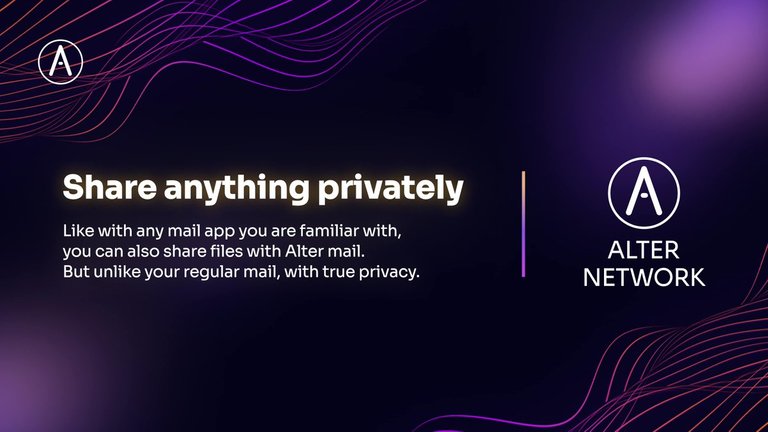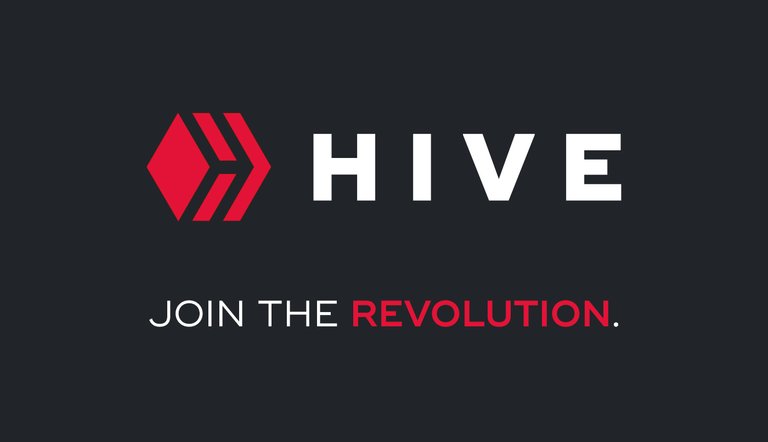
Continuing on from Part 1
Financial Privacy is vital to Self-Sovereignty, and any good financial planner knows this, whether they acknowledge it or not.
But this isn’t about some Series 6 & 77-licensed CFP, this is about Self-Sovereignty, and how Monero fulfills the promise many Bitcoin maximalists feel their asset represents.
Monero isn’t like Bitcoin, in that, its blockchain is completely private and anonymous. You can’t easily determine what quantities of $XMR tokens move from address-to-address, nor can you easily track who pays whom and how much. The same goes with location: with Monero, there’s no telling where it is located (what mobile device, what computer, what hardware wallet) in the world, and that is what makes it a truly magical creation for we, the people, and such a terrifying creation in the eyes of the World Economic Forum and the communists who seek to take total financial control of the entire world.

Since the very beginning of civilization, there have been many forms of money that have been accepted by people as a form of payment, a medium-of-exchange, a store-of-value, and a unit-of-account.
In some places, industrial metals like copper and tin were seen as money, in others, precious metals such as gold and silver, and yet in others, agricultural commodities, such as salt or wheat were acceptable.
To a 21st-century mind, that might sound a bit strange. I mean, after all, who would accept a bushel of wheat as payment for, say, an iPhone 14 Plus?
How would you even carry that many bushels of wheat to an Apple Store to pay for such a device? Is that even practical in today’s world? Well, ask yourself, how do you pay for things in 2023?
Chances are, if you live in the United States, you use either a credit card or debit card, for most transactions. Debit cards store digitized dollar bills from a checking account attached to the card. You can’t technically spend more than you have, although overdraft fees are a huge money-maker for American banks these days.
Young people, especially, are adopting a new(er) method of paying for goods and services: digital payments. This trend really began to spread through the proliferation of iPhones and the Apple Wallet, where you could easily enter your debit or credit card details and, voila, a digital version of your card(s) could be used from your phone at Point-of-Sale (PoS) kiosks, whether at the checkout line in the grocery store, a fuel pump at a gas station, or to purchase products at your local farmers’ market.
The possibilities with digital payments are truly limitless, but unfortunately, there is an underlying problem with these Apple Wallets (and Google’s Digital Wallet as well). The problem, is that you’re still using a card that is ultimately either: a) issued to you by a credit card company, that charges an average of 20%+ interest per month or b) tied directly to your checking account, and can be stolen via cyber-attack and used much in the same way your physical debit card could be.
Sure, your cellphone might have some built-in security features, but, as has been demonstrated by “law enforcement” and the government, if it is on your phone, it CAN be taken from you. Entrusting your mobile device, which is inherently insecure, and proprietary technology, with your financial security is a big leap to take, when you consider how easy it is for phones to be stolen and compromised in today’s cyber security landscape.
Monero seeks to change this in fundamentally different ways. First and foremost, whenever you use a credit card, every single transaction you make, every merchant you pay, is recorded on a ledger. That ledger (and the transaction data, itself) belongs to the credit card issuing company, and is sold to advertisers, for a profit, at your expense. You have no control over that data, and as long as you use a credit card, you never will.
Why does this matter, you may ask? Why should I care about who has my credit card transaction ledger? What difference does it actually make?
Well, if you were raised in the American public school system, you were taught about the 4th Amendment of the US Constitution, which protects you from “unreasonable search and seizure” as the document states.
While it is debatable as to the extent to which this protection has been attacked and diminished (if not downright eliminated entirely through the Patriot Act, passed in 2001), it is a legal right of yours, as an American, to not have all your personal communications monitored and sold off to whomever wants it.
You might not think it really matters WHO sees your data, but what if, and hear me out:
What if you were a person of interest to a law enforcement entity, because you were physically walking down the street when a crime was committed? What if you felt unsafe, after that experience, and wanted to buy a firearm and ammunition, for self-defense? What if you went to the gun store and were turned away by the merchant, when your ID came back with a positive match with one of those aforementioned watch lists?
Wouldn’t that be an infringement on your legal right to self-defense, and your legal right to purchase whatever you want with your own money? Wouldn’t it be so easy for law enforcement to say, “You are a threat to the community, therefore you do not get to have the right to self-defense. You are hereto BANNED from purchasing any firearm or ammunition (legally) from any gun store in the United States.”
Wouldn’t that scare the hell out of you? You were present when a crime was committed, you got scared, you wanted to gain the ability to defend yourself and your loved ones with a firearm, and you were prohibited from doing so BY THE POLICE.
The point of this example is that anyone can have their purchasing power diminished or restricted if they choose to operate withing the surveillance system, which includes all credit card transactions conducted globally.
Now imagine, you don’t have a bank account (for any reason, whatsoever). Imagine that you are a manual laborer who gets paid daily by your employer in cash. Now, if you are operating outside the traditional banking system, you can’t access credit. You can’t obtain a credit card, because you have no records to prove you are creditworthy. Imagine you want to go buy a gun, with cash. Who is going to stop you?
Well, as long as US Dollar paper bills are accepted as legal tender, no one can. And that’s a good thing, because no one has the right to tell you what you can or cannot spend your money on, given that you are of legal age to do so (the same applies to tobacco, alcohol, gambling, and the adult entertainment industry).
Now imagine the doomsday scenario, there’s a cash shortage and your employer tells you that they want to continue paying you, but with something that they do not have to worry about as much liability with.
Monero enters the picture. Monero is a globally-accessible, private, and anonymous blockchain-based cryptocurrency that dominates as a P2P payments method online.
Many software companies are beginning to accept cryptocurrency as a form of payment for their products & subscriptions, and Monero is one such currency that can be used for that purpose.
What is the benefit or advantage to doing so, you might ask? Well, for one, Monero cannot be traced back to you. If handled correctly, no one would ever know whether you possessed any Monero ($XMR) or not. The whole point is discretion. Only you and the seller (of goods and services) would ever know that $XMR was used, and no record is created that ties your legal identity to the payment.
Now, this might scare some people. To lifelong rule-followers, I can hear their concerns booming already:
Won’t this enable global money-laundering at a scale we’ve never seen before?
Won’t this “Monero” enable for crimes to be paid for without being traceable back to the financier or perpetrator?
Won’t Monero make it easier for people to avoid paying taxes to the IRS (or affiliated internationalist robber entity)?
Here are some basic things to understand about the existing US Dollar system that dominates the world:
#1) The most common method of payment globally, is the US Dollar. Nothing else comes close.
#2) The US Dollar has been used to finance global criminal cartels in all businesses, since the inception of the system in 1913.
#3) See #2
#4) All taxation is theft under Constitutional law. If you are so concerned about what other people are doing, maybe you should consider why you care so much.
The Income Tax Act was originally pushed through Congress to ONLY target the wealthiest Americans. Sound familiar? It’s because it’s the same authoritarian criminal rhetoric that war profiteering mouthpieces like Elizabeth Warren uses to attempt to justify her demands for a “Wealth Tax.”
The ironic part of all of this, is that income tax is just the first time the IRS steals Americans’ wealth. Then you have all sorts of consumption-based taxes, from State and Local Sales Tax (SALT) to sin taxes on liquor, tobacco, and cannabis, to taxes on your supposed “property,” which even extends to vehicles in certain states.
Those aforementioned taxes are all taken out of Americans’ paychecks BEFORE the most egregious taxes are taken out: government-mandated social programs. Instead of giving your hard-earned wages to you, the person who spent the time selling their labor, the government demands you hand over 6.25% of your gross income to the Social Security Administration, which operates as the public face for the greatest theft of wages perpetrated against the American people since the Income Tax Act was first implemented.
Social Security is a way to redistribute workers’ wages to pay for old people’s lives. Instead of those old people having personal responsibility with their own money management, they can depend on a check from the Big Government every month after they turn 62, until the day they die.
Isn’t that lovely? And you pay for it. That doesn’t mean you will ever benefit in the same way. In fact, there’s a very high likelihood that most young Americans will never see a penny of all the thousands (if not tens of thousands of dollars) that will be stolen from their paychecks for the next 40 years of their working lives, in time for their retirement.
This isn’t an argument against Social Security - that is a topic for a much longer article. The issue of taxes matters because, well, if your currency transactions are private, how can the IRS know how much they think you are obligated to pay them?
The answer is that they can’t. This is why the European Commission is so desperate to ban privacy-focused cryptocurrencies like Monero (and ZCash). If they cannot track every single purchase you make, if they cannot track every single sale you make, how could they possibly demand protection money from you (in the “form” of “taxes”)?
Do you see the pattern now? Governments hate Monero because it frees people from third party financial surveillance (when used appropriately P2P). Even now, as I write this, you can find numerous articles online describing how CBDCs will work and what their true purpose is.
Don’t let the fear-mongers win, there are options for you, and Monero is the most obvious one, in my view. Monero enables self-sovereignty in a way that has never been achieved before in human history.
One of the central “investment” theses for Bitcoin is that it is border-less and only exists on the Bitcoin blockchain, and therefore, cannot easily be confiscated like gold or silver can be. Monero takes this a step further, and obfuscates all transactions made on-chain.
No one would ever know whether you are buying anything or not. Monero enables true financial freedom in a way that no other cryptocurrency (created so far) can. That is what makes it truly special and unique in the blockchain world of finance.

This ends the free-to-view parts of this 3-part article on Financial Privacy and Monero. I hope that the information presented got you to think differently about money and privacy.
In the 3rd part of this article (coming in the next week), I will be detailing some of the software I use with Monero, which can enable you (and anyone you know) to become a private consumer as well!




If you appreciate my work and would like to support me:
Subscribe to my Substack
Send Bitcoin
Buy Me A Cup of Coffee
Become a Patron
Donate on Stripe or CashApp
Listen on Cast.Garden
Watch on 3Speak
Listen on Fountain
Subscribe to my YouTube Channel
Join My Discord Community
Follow on Telegram
Send Monero: 432LkrBjScjg6PuwstToSY6TRN7GrUgQ87sKPdbssT81fS5f1jqPZTaLxRKYWc2nqaKN77Etf4BXCbicVc3ELNkYK47xEwK